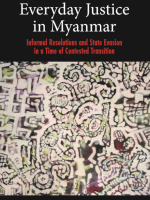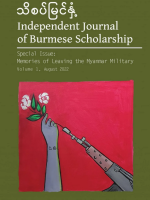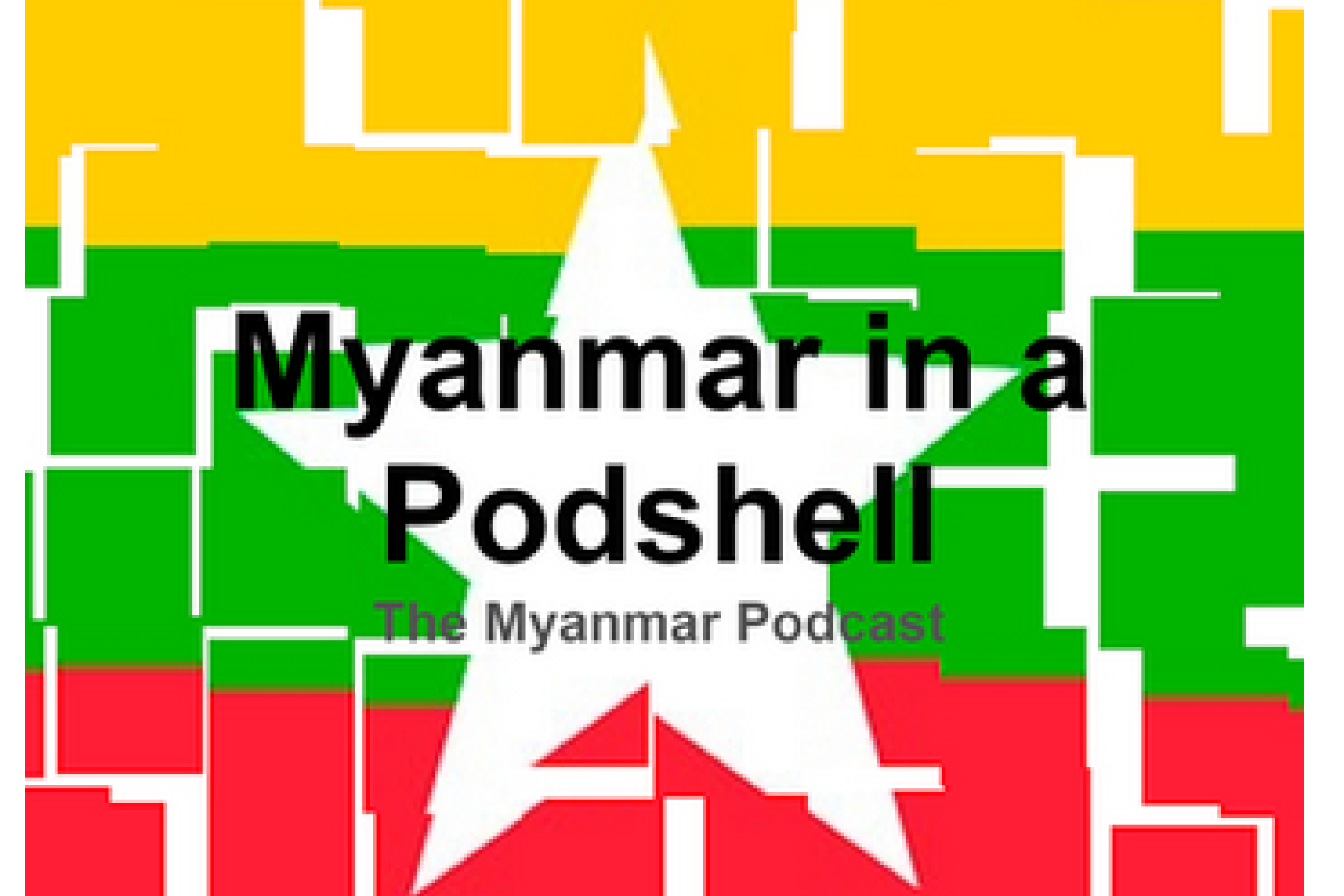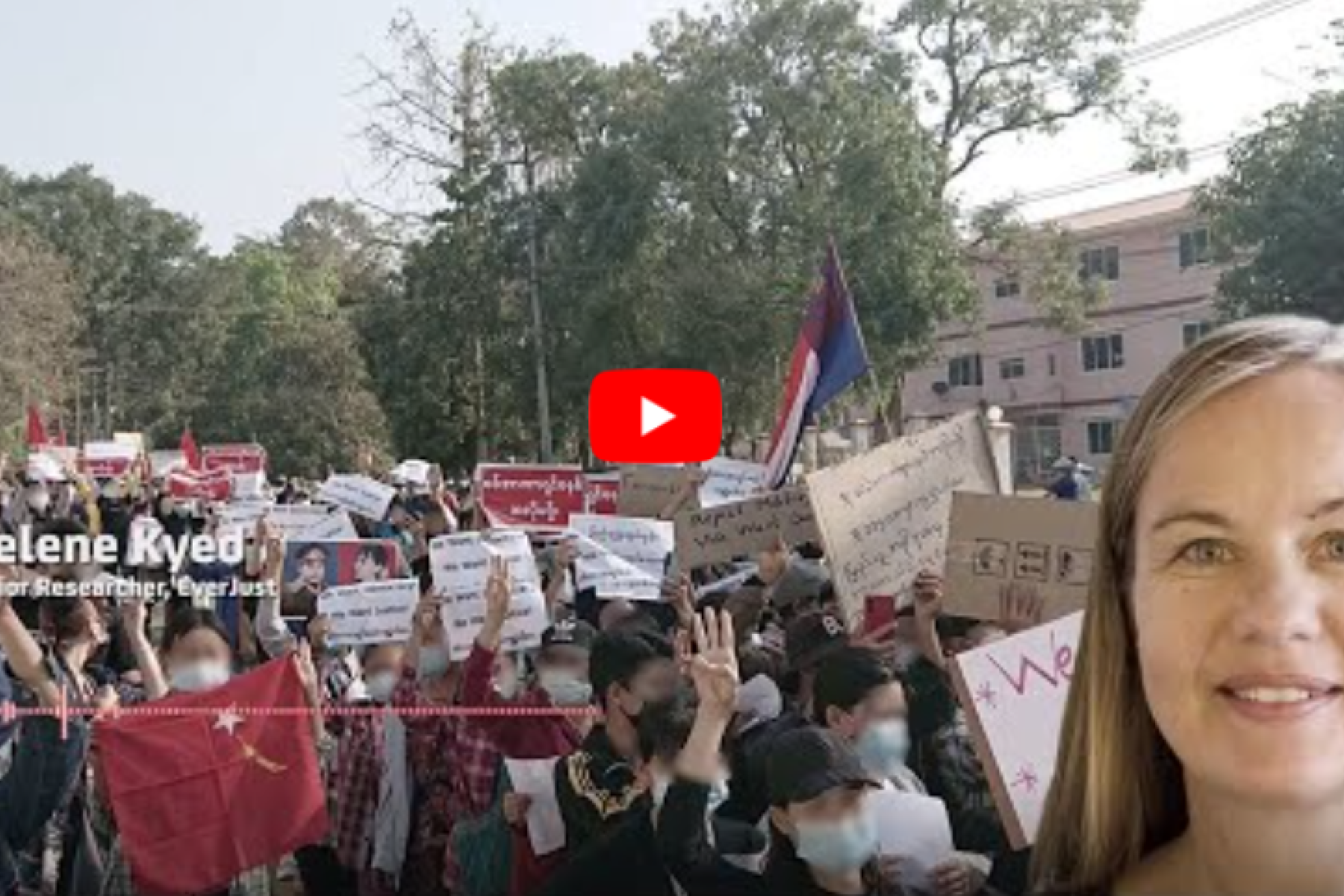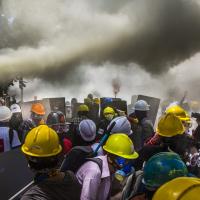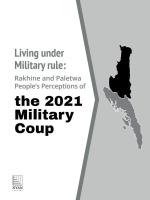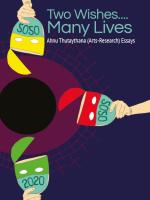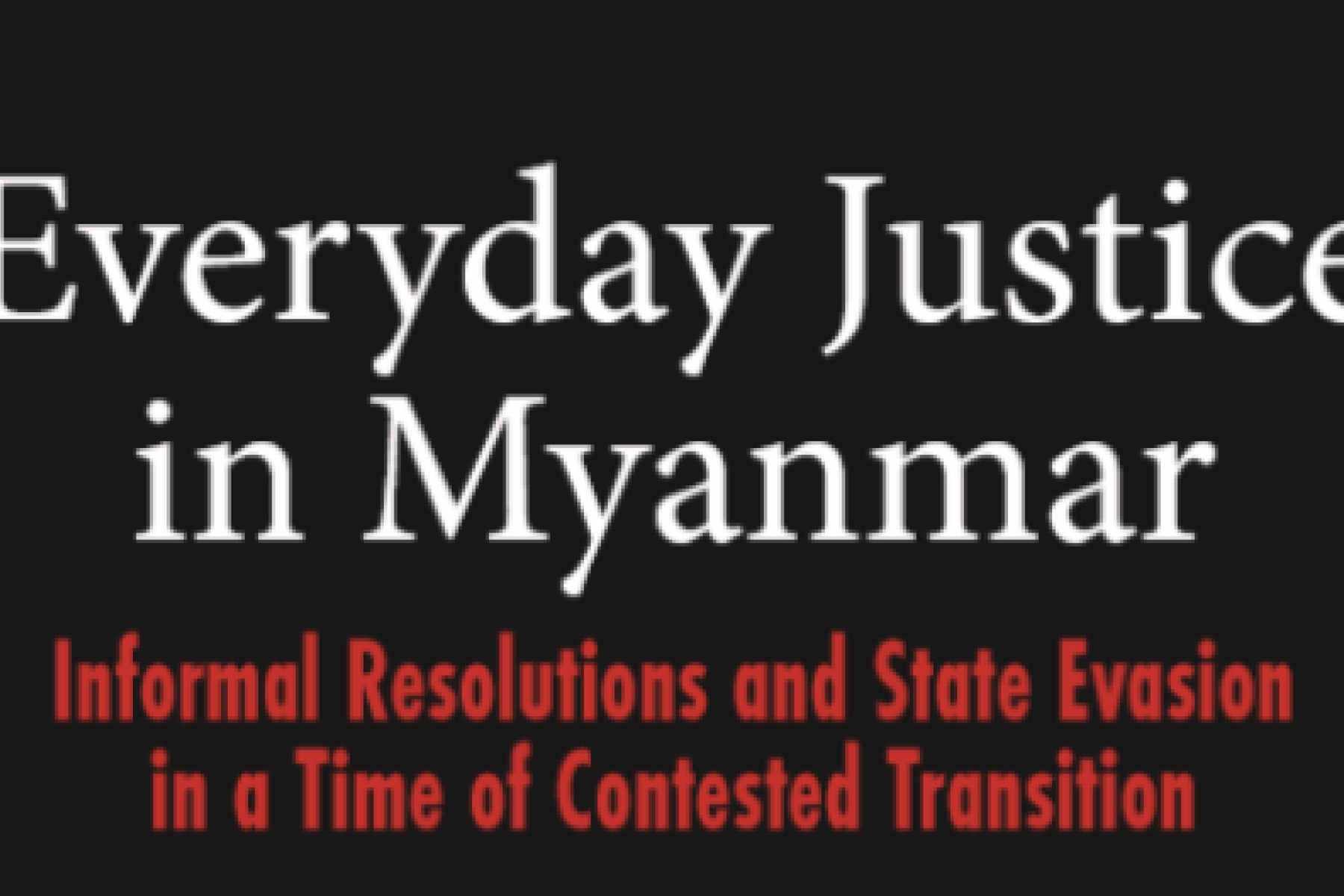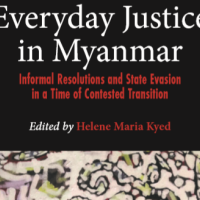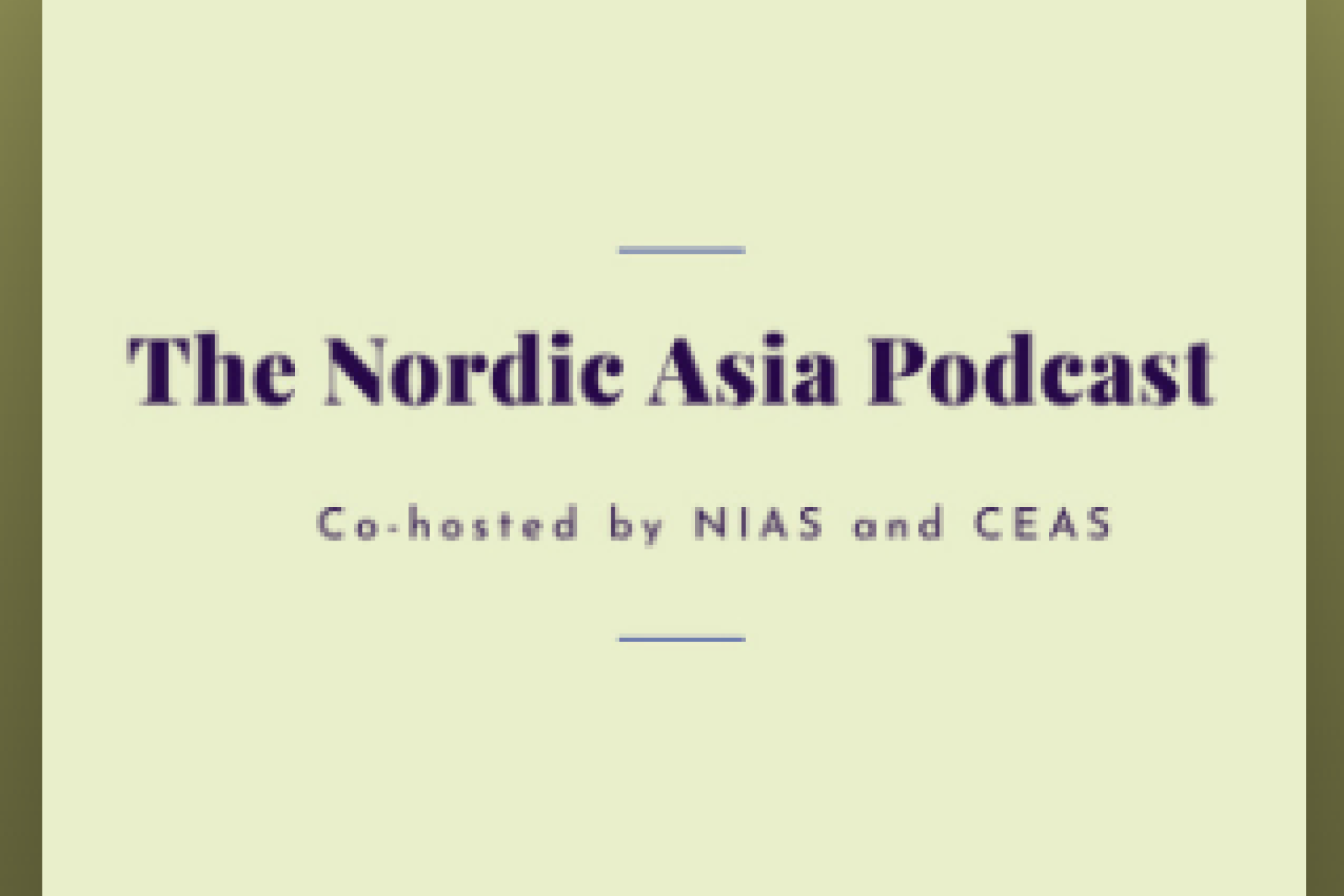EverJust – Everyday Justice and Security in the Myanmar Transition
How is authority constituted and legitimised in areas that have endured many years of armed conflict? Everjust has examined this question through in-depth studies of local conflict resolution, justice provision and security in Myanmar since 2015.
The project was the first larger Danish collaborative research project in Myanmar.
Based on qualitative fieldwork, the project has produced in-depth knowledge of how and by whom disputes, law breaks and insecurity are dealt with at the local level. We have also analyzed the diverse perceptions of justice and injustices. The main part of the ethnographic studies have been conducted among marginalized urban dwellers and in ethnic-minority areas (Karen, Mon, Naga, Danu, Pa-O). These areas have experienced decades of conflict and been governed mainly by non-state actors, including ethnic armed organizations, customary authorities, religious leaders, and civil society groups. The research has shed light on how authority is constituted in such areas with contested statehood through the lens of everyday justice and security provision. One key finding is that most ordinary people prefer to have their disputes and crimes resolved as locally as possible, and that they deliberately evade the state. This is partly due to a deep historical mistrust in the militarized state, and partly due to cultural norms and identity politics.
Theoretically the project has contributed with unique insights to the debate on legal pluralism and how such pluralism affects state formation, peace building and democratization in contested states.
The project’s empirical findings have also helped inform policy debates in Myanmar and among international actors, through dialogue with and dissemination of findings to NGOs, legal practitioners, ethnic organizations and international development partners, including Danida, the EU and UN organisations.
An important part of EverJust has been to contribute to social science research capacity building in Myanmar through various training courses, materials, joint field research, publications, and international conference participation.
Since the military coup on 1 February 2021, the project has also contributed with studies on democratic opposition to military rule, police and military defections, and everyday coping mechanisms, including in relation to COVID-19.
On this project website you can explore our activities and publications from 2015 to 2021.
Academic writing workshop 2, 30 November – 6 December 2017, EMReF, Yangon
This seven-day workshop was focused on developing a second set of academic papers, based on the empirical field research conducted by the EverJust researchers during 2016-17. The EverJust project coordinator, Helene Maria Kyed, facilitated the workshop by providing refresher training in how to write an abstract, develop a literary review and structure an academic paper. The purpose was to enhance critical engagement between empirical data and theory. All participants developed their own draft paper, which will later be refined and become part of a collective book on Everyday Justice in Myanmar.
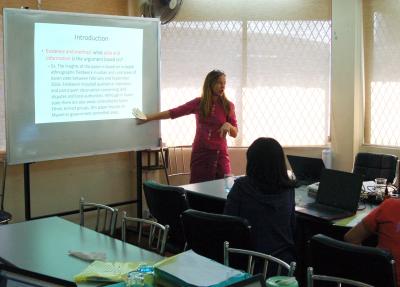
Mobile data training, 6-10 November 2017, EMReF, Yangon
The mobile data collection training was conducted by So Dane from Korea for all the EverJust researchers and additional staff at EMReF. The purpose was to get practical training in how to use mobile phones to collect quantitative data.
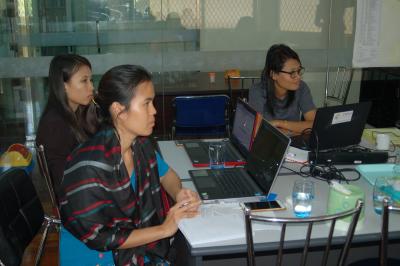
Survey method training, 2-6 October 2017, EMReF, Yangon
This course focused on how to conduct surveys, which was an addition to previous courses, which have focused mainly on survey data entry and analysis. The course was conducted by Dr. Mike, who has extensive experience with large survey work in Myanmar. EverJust researchers participated together with additional staff from EMReF.
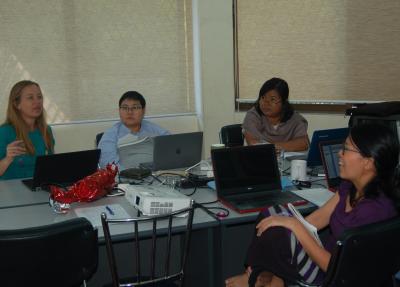
Academic writing course, 3-11 November, 2016, EMR, Yangon
EverJust participants were trained by the research coordinator in what it means when a paper or article is academic, including analytical and critically reflective elements. Training also covered how to structure a paper, make references and combine theory and empirical data. Practical exercises were a core part of the course: each participant had to write her own paper, some for the February 2017 Myanmar Up-date Conference at the Australian National University, and others for later conferences. There were nine participants in the course.
Quantitative data-entry training, 17-19 October 2016, EMR, Yangon
As part of the EveryJust project survey, Dr- U Zaw Win from the Statistics Department provided a three-day training course in CSPro quantitative data entry, coding and cleansing software. In order to support the wider capacity building of EMR on quantitative methods, other staff members were also allowed to join, resulting in a total of 12 participants. The Anthropology Department of Yangon University also participated, as they have requested that the EverJust project strengthens their ability to do surveys and analyze quantitative data.
Survey design and training, 16-19 August 2016, EMR, Yangon
At this training EMR and DIIS researchers designed a survey, based on the preliminary qualitative findings from fieldwork in Yangon and in Mon and Karen States. The purpose is to add quantitative data to the research project. We discussed methodological and conceptual matters for the design, and then the team members were trained in how to conduct the survey. This was followed by a one day piloting of the survey, and a one day debriefing to adjust the survey to the insights from the pilot. Survey data collection will take place during September and October 2016.
Data organisation and preliminary analysis course, 15-23 June, 2016, EMR, Yangon
At this course the project coordinator gave training on data organization, coding, indexing and preliminary analysis. This was followed by six days of joint work around coding and analyzing the fieldwork data obtained so far. We also prepared a joint power point presentation on preliminary findings, which was presented at an information meeting for key stakeholders on 24 June in Yangon.
Federal Justices: legal pluralism and the rule of law, workshop, 30-31 May, 2016, Hpa-An (funded by the Friedrich Ebert Stifttung)
Myanmar is facing a dual process of transition, involving peace peacebuilding and democratization. Justice sector reform is an important component of both these processes and focuses on the rule of law and institutional improvements. An important question is also what will happen in the future with existing non-state or ethnic justice mechanisms in the ethnic minority and former conflict areas.
Internationally, justice sector reform now increasingly includes considerations of so-called non-state or informal justice provision in different ways and to different degrees. In some countries the constitution now recognizes ‘legal pluralism’, allowing for different legal systems and laws to co-exist within the same nation-state. In other places certain elements of customary law, particularly family law, are recognized by the central state to deliberate cases for specific religious and/or ethnic groups. There are also situations where customary law is applied within state courts and where systems of appeal between local customary and state courts exist. The most extensive forms of legal pluralism are found in Latin America for Indigenous Populations. There is not one particular model for ‘legal pluralism’, as it varies from context to context what laws and institutions exist and are seen as legitimate by the populations. In common, however is the acceptance that within the nation-state there is recognition of ‘culturally’ specific justice systems: these enjoy a level of autonomy from the central judiciary, but it is important to develop relevant linkages and forms of collaboration.
In this workshop the aim was to discuss possible scenarios for future justice sector reform in Myanmar as part of peacebuilding and the political dialogue about federalism. This included discussing the possible recognition of already existing justice institutions and practices on the ground and in the ethnic nationalities areas. The particular focus in this workshop was the courts and legal systems in Karen state, including those of the ethnic organizations as well as the customary laws and village justice practices that currently exist in Karen populated areas. Questions for the workshop participants include:
How do the ethnic courts operate today? What practices prevail and what laws and procedures are enforced? How are the Karen National Union courts linked to village level dispute resolution and customary forums? What are the main challenges they face today? What could be their future position in a federal system, such as linkages to village dispute resolution as well as to central state and federal or union level courts? In a federal set-up should the ethnic courts only deal with cases inside particular geographical areas and/or for particular ethnic groups? Should they continue to deal with all kinds of cases, or have limited jurisdictions, such as family law and minor criminal cases? These and many other questions were discussed at the workshop in an open-ended manner.
The EverJust project provided presentations on legal pluralism and the recognition of customary institutions, and other invited speakers presented on international rule of law principles and justice sector reform. It was an excellent opportunity to share EverJust research insights with justice providers in Karen state ethnic areas.
Training Course 3, 5 – 15 January 2016: Quantitative methodology and statistics
A basic introduction to quantitative methodology and the use of STATA. Professor Jenifer Whitten-Woodring, University of Massachusetts Lowell, provided the training. For many of the EverJust project participants it was the first time to be acquainted with quantitative methods, and the knowledge will be useful in conducting surveys in the later part of 2016.
Training Course 2, 14 August – 02 October: Qualitative Research Methodology
A basic introduction to qualitative methodology, with a specific focus on long-term ethnographic work. We looked at the theories behind qualitative methods, the concrete data collection tools that are used, and discussed access, field relations and ethical dilemmas. The course included small practical exercises with participant observation and interviews in public spaces in Yangon.
Training Course 1, 13 May – 24 June: Legal Pluralism - Everyday Justice & Security
The course introduced key concepts in legal anthropology and theories about justice and law, and discussed a range of case studies of everyday justice and local security provision from different countries.
Internal Preparation Workshop, EMR, Yangon, 20-21 March 2015
The project’s researchers from Denmark and Myanmar met in Yangon to discuss the project objectives and research questions, and some preliminary ideas about the methodology and concepts. We also shared knowledge about each of our research institutions, and the participants from Yangon University outlined the capacity building needs of the anthropology department. An invited guest speaker shared his experiences with doing fieldwork in Karen and Mon States, and Myat Thet Thitsar from EMR shared her insights about previous studies of rule of law and justice in Myanmar.
Webinar about the new book ‘Everyday Justice in Myanmar’
9 October 2020, hosted by the London School of Economics
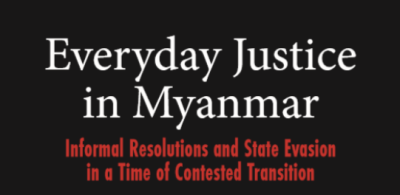
Highlighted publications
Researchers

Research and activites
-
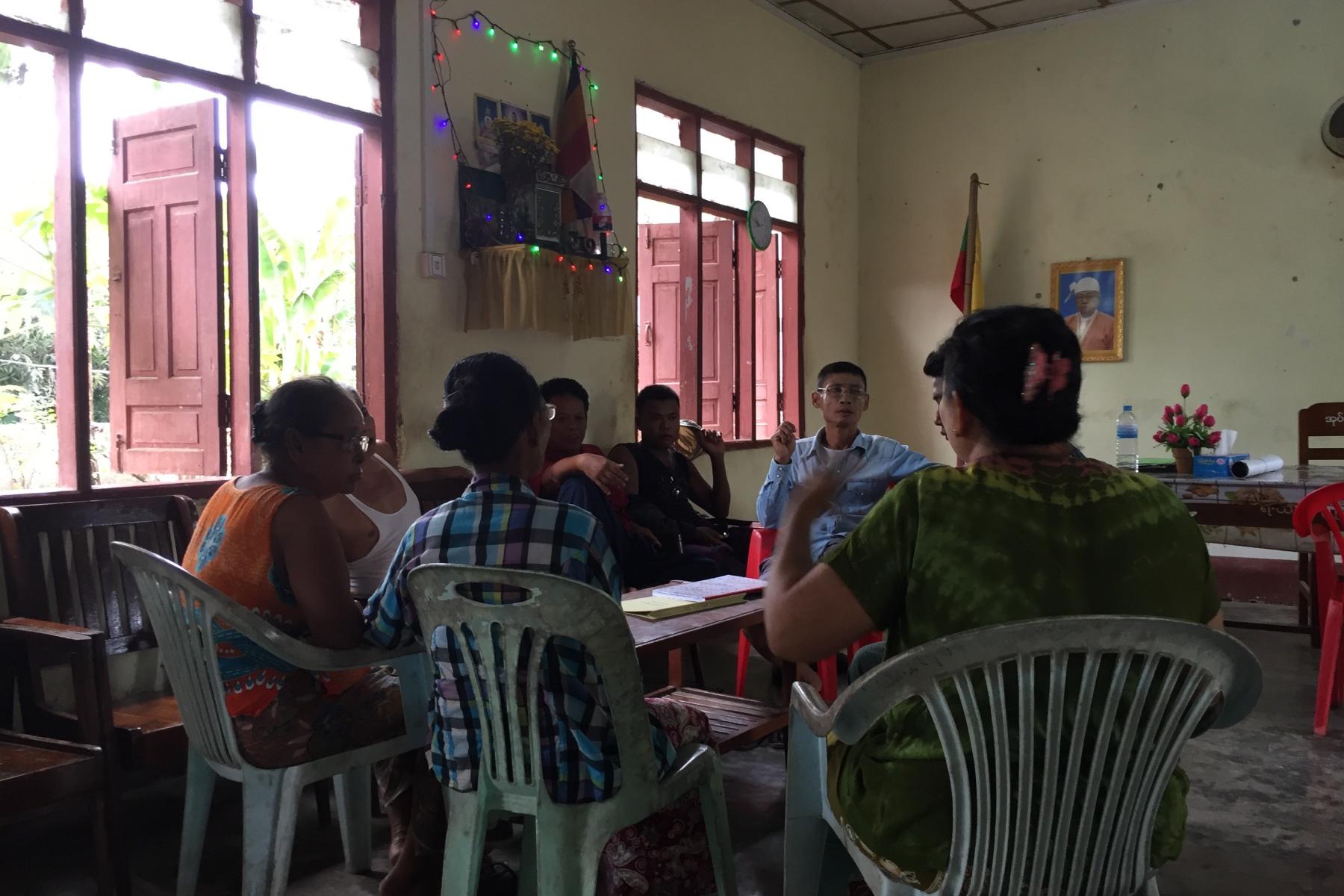 Photo/illustration by Helene Maria KyedChapter2024Helene Maria Kyed & David Ludden
Photo/illustration by Helene Maria KyedChapter2024Helene Maria Kyed & David Ludden -
Journal Article2022Helene Maria Kyed
-
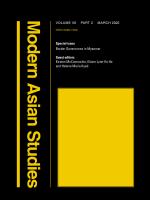 Book2022Kirsten McConnachie, Elaine Lynn-Ee Ho & Helene Maria Kyed
Book2022Kirsten McConnachie, Elaine Lynn-Ee Ho & Helene Maria Kyed -
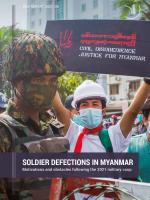 DIIS Report2021motivations and obstacles following the 2021 military coupHelene Maria Kyed & Ah Lynn
DIIS Report2021motivations and obstacles following the 2021 military coupHelene Maria Kyed & Ah Lynn -
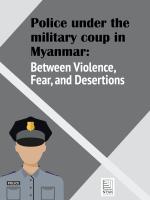 Report2021Between violence, fear, and desertionsNyan Corridor & Helene Maria Kyed
Report2021Between violence, fear, and desertionsNyan Corridor & Helene Maria Kyed -
Report2021Rakhine and Paletwa People’s Perceptions of the 2021 Military CoupNyan Corridor & Helene Maria Kyed
-
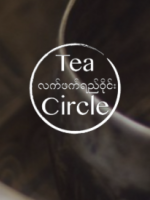 Journal Article2021Helene Maria Kyed
Journal Article2021Helene Maria Kyed -
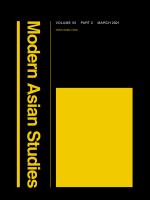 Journal Article2021contested and plural authorities in a Karen village after the ceasefireHelene Maria Kyed
Journal Article2021contested and plural authorities in a Karen village after the ceasefireHelene Maria Kyed -
Booklet and report2021Ahnu Thutaythana (Arts-Research) Essays
-
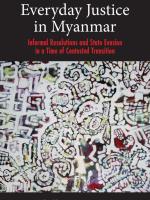 Book Chapter2020Political recognition and justice practices in the Naga Self-Administered ZoneLue Thar, Myat The Thitsar & Helene Maria Kyed
Book Chapter2020Political recognition and justice practices in the Naga Self-Administered ZoneLue Thar, Myat The Thitsar & Helene Maria Kyed -
Book2020Informal Resolutions and State Evasion in a time of contested transitionHelene Maria Kyed
-
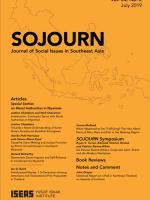 Journal Article2019Helene Maria Kyed & Annaka Pohl Harrisson
Journal Article2019Helene Maria Kyed & Annaka Pohl Harrisson -
 Photo/illustration by Pexels. Jens Mahnke. copyright licenseJournal Article2019Helene Maria Kyed
Photo/illustration by Pexels. Jens Mahnke. copyright licenseJournal Article2019Helene Maria Kyed -
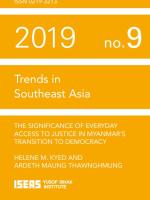 Report2019Helene Maria Kyed & Ardeth THAWNGHMUNG
Report2019Helene Maria Kyed & Ardeth THAWNGHMUNG -
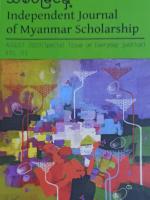 Book2018Independent Journal of Burmese ScholarshipHelene Maria Kyed
Book2018Independent Journal of Burmese ScholarshipHelene Maria Kyed -
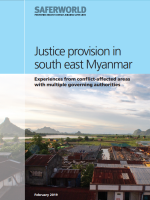 Report2018Experiences from conflict-affected areas with multiple governing authoritiesHelene Maria Kyed
Report2018Experiences from conflict-affected areas with multiple governing authoritiesHelene Maria Kyed -
 Photo/illustration by Pexels. Jens Mahnke. copyright licenseReport2018Exploring Everyday Justice in South East MyanmarHelene Maria Kyed
Photo/illustration by Pexels. Jens Mahnke. copyright licenseReport2018Exploring Everyday Justice in South East MyanmarHelene Maria Kyed -
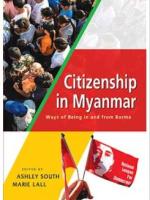 Book Chapter2017Helene Maria Kyed & Mikael Gravers
Book Chapter2017Helene Maria Kyed & Mikael Gravers -
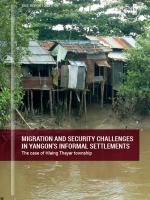 DIIS Report2017The case of Hlaing Thayar townshipHelene Maria Kyed
DIIS Report2017The case of Hlaing Thayar townshipHelene Maria Kyed -
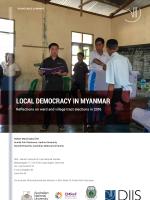 Photo/illustration by Pexels. Jens Mahnke. copyright licenseRoundtable Summary2016Reflections on ward and village tract elections in 2016Helene Maria Kyed, Annika Pohl Harrisson & Gerard McCarthy
Photo/illustration by Pexels. Jens Mahnke. copyright licenseRoundtable Summary2016Reflections on ward and village tract elections in 2016Helene Maria Kyed, Annika Pohl Harrisson & Gerard McCarthy -
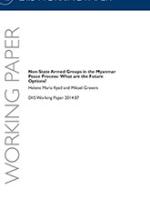 DIIS Working Paper2014What are the future options?Helene Maria Kyed & Mikael Gravers
DIIS Working Paper2014What are the future options?Helene Maria Kyed & Mikael Gravers -
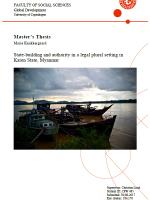 Photo/illustration by Pexels. Jens Mahnke. copyright license
Photo/illustration by Pexels. Jens Mahnke. copyright license
-
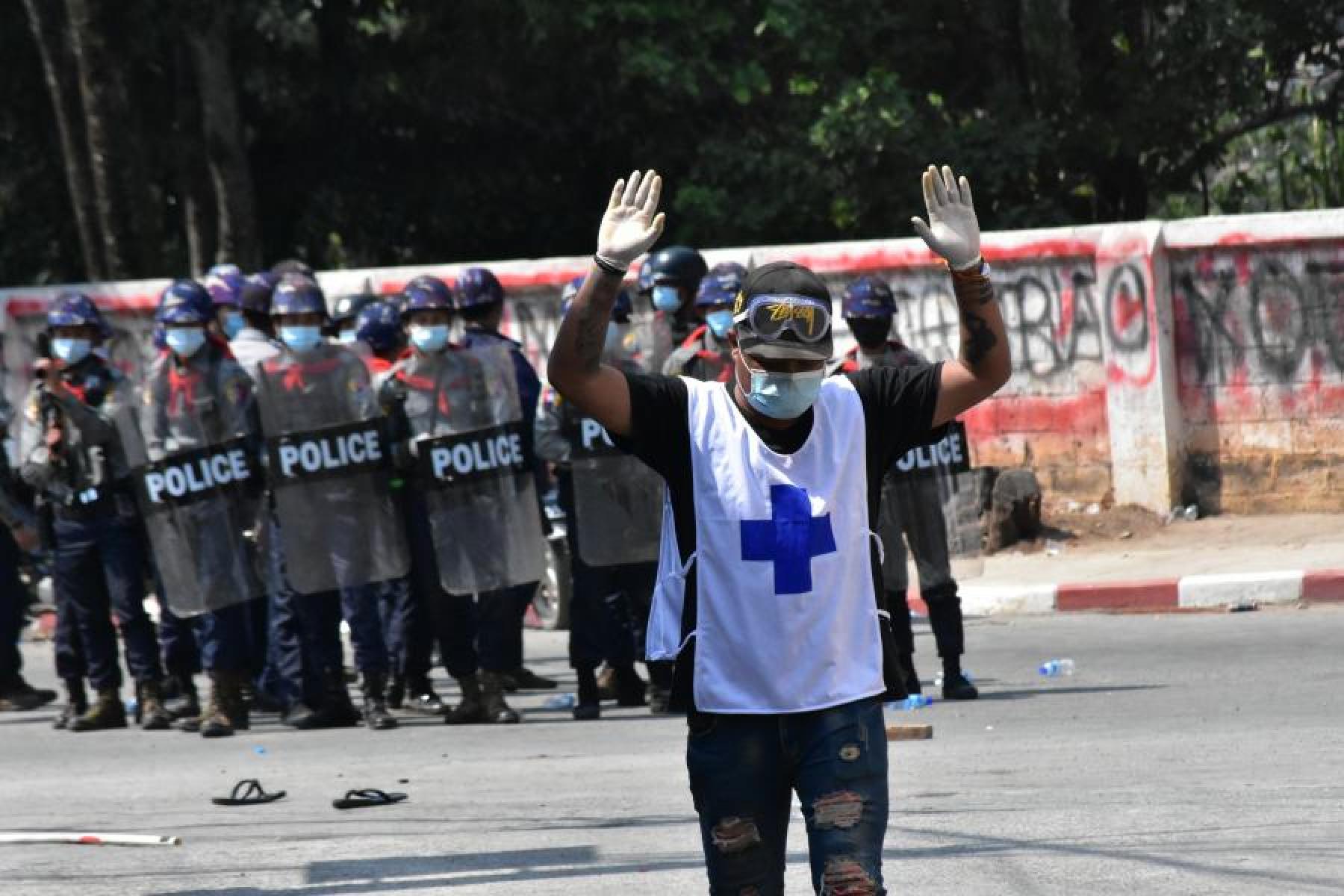 Photo/illustration by R. Bociaga via ShutterstockDIIS Comment2021Helene Maria Kyed
Photo/illustration by R. Bociaga via ShutterstockDIIS Comment2021Helene Maria Kyed -
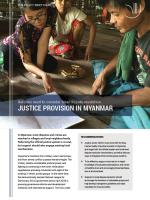 Photo/illustration by Pexels. Jens Mahnke. copyright licenseDIIS Policy Brief2017Reforms need to consider local dispute resolutionHelene Maria Kyed
Photo/illustration by Pexels. Jens Mahnke. copyright licenseDIIS Policy Brief2017Reforms need to consider local dispute resolutionHelene Maria Kyed -
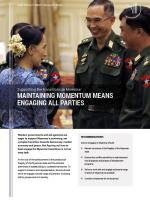 DIIS Policy Brief2016Supporting the transitions in MyanmarLouise Riis Andersen
DIIS Policy Brief2016Supporting the transitions in MyanmarLouise Riis Andersen -
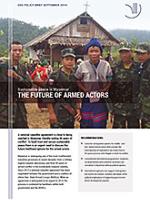 DIIS Policy Brief2014the future of armed actorsHelene Maria Kyed & Mikael Gravers
DIIS Policy Brief2014the future of armed actorsHelene Maria Kyed & Mikael Gravers

